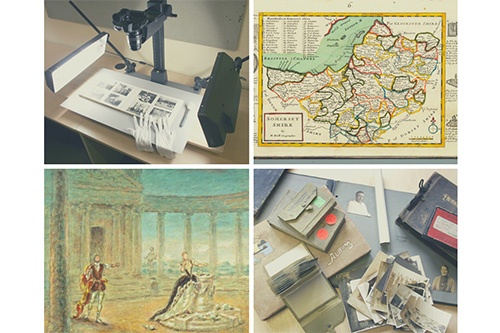Works by engineering genius Isambard Kingdom Brunel, pioneering documents of early science and rare films are some of the artefacts able to be put online thanks to funding worth more than £250,000.
For decades academics and enthusiasts had to travel to Bristol to study many of the thousands of documents, photos, objects and films being held by the University.
Now these artefacts - dating from as early as the 11th century - can be put online, where anyone will be able to see photos, videos and advanced 3D visualisations.
Meanwhile, in ‘virtual reading rooms’, University of Bristol experts will use video conferencing and the 3D visualisations to guide those who cannot visit in person through particular items in forensic detail.
The material being digitised is part of the University’s Special Collections and Theatre Collection – both internationally renowned collections.
The University of Bristol Special Collections includes the world’s finest collection of original Isambard Kingdom Brunel material, works of early science, a leading record of medical history and the archives of Penguin Books Ltd.
The Theatre Collection, an accredited museum and an Arts Council Designated Collection, is one of the world’s leading collections relating to the history of British theatre and live art. It documents life on and offstage and contains archives of actors, designers, photographers, playwrights and theatre companies.
Ed Fay, University of Bristol Director of Library Services, said: “We are very excited to be opening up some of our most treasured collections to the world.
“These have always been open to study but soon no one will need be held back by time or geography.
“The pandemic brought home to us how important having virtual services can be. Putting our collections online not only democratises access to them, but also helps preserve them for generations to come.”
The project to transform our digitisation capabilities – dubbed ‘Digitally Present and Engaged – will also help digitally preserve film-based material and other sources nearing the ends of their physical lives.
Digitally Present and Engaged was made possible by two grants: £150,000 from the Arts and Humanities Research Council and £110,000 from a larger £1m Research England World Class Laboratories grant, which will benefit several parts of the University.
